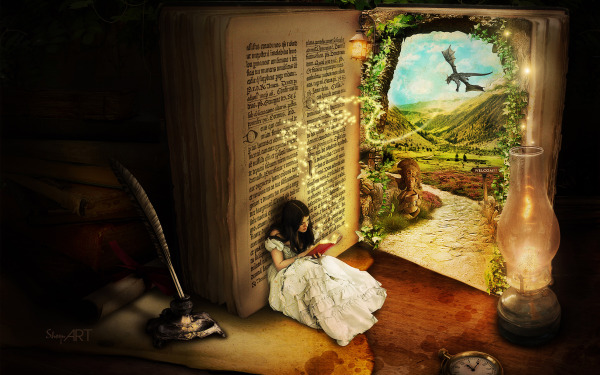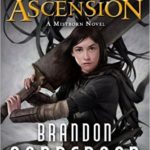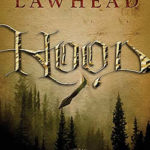The True Form Of Fairy-Tale
If [a writer] indeed achieves a quality that can fairly be described by the dictionary definition: “inner consistency of reality,” it is  difficult to conceive how this can be, if the work does not in some way partake of reality. The peculiar quality of the “joy” in successful Fantasy can thus be explained as a sudden glimpse of the underlying reality or truth. It is not only a “consolation” for the sorrow of this world, but a satisfaction, and an answer to that question, “Is it true?”
difficult to conceive how this can be, if the work does not in some way partake of reality. The peculiar quality of the “joy” in successful Fantasy can thus be explained as a sudden glimpse of the underlying reality or truth. It is not only a “consolation” for the sorrow of this world, but a satisfaction, and an answer to that question, “Is it true?”
– J.R.R. Tolkien, “On Fairy Stories”
What most impresses me about this brief passage is that here, Tolkien appeals to reality in justifying joy in fairy stories. Usually, when people start talking about reality and fiction, it’s to justify the “grit”. The difference is revealing as to what Tolkien thought of fairy tales – and of reality.
In his essay “On Fairy Stories”, Tolkien’s last point was his most important point. To present his views most clearly, I find I have to present them in almost the reverse order of how he did – a strange but tenable position.
Tolkien believed in what he called the eucatastrophe – the “good catastrophe”, the opposite of Tragedy. He called the Gospel the Great Eucatastrophe, and wrote: “The Birth of Christ is the eucatastrophe of Man’s history. The Resurrection is the eucatastrophe of the story of the Incarnation. The story begins and ends in joy.”
And because Tolkien regarded the Gospel as the only true fairy tale, he naturally believed that the “eucatastrophic tale is the true form of fairy-tale”. He wrote with eloquence of the “imaginative satisfaction of ancient desires” found in fairy tales, and then added, “Far more important is the Consolation of the Happy Ending. Almost I would venture to assert that all complete fairy-stories must have it.”
This belief in the utter rightness – almost the necessity – of happy endings to fairy tales is almost surprising. Professor Tolkien would, I think, find himself crosswise with most sophisticated opinion. Fairy tales were once very dark, and they are now growing darker again. Even Christian writers and readers are trafficking more in darkness, not always without a sense of superiority. Happiness is too simple for sophisticated taste.
I wonder about the discrepancy between one viewpoint that holds joy the true greatness of Fantasy and another viewpoint that does not find it necessary at all. What causes such a difference?
One large reason, I think, is that many people don’t believe in the Great Eucatastrophe. Tolkien said that the joy of the happy ending denied “universal final defeat”, but some spiritual worldviews – and all merely materialist ones – confirm it. Tolkien thought eucatastrophe, happy endings, were true to reality; others regard unhappy endings as truer.
There are also people who believe the Gospels but do not, for whatever reason, connect them to fa iry tales (or fiction generally) in the way that Tolkien did; they do not believe that the Great Eucatastrophe has “hallowed” happy endings.
iry tales (or fiction generally) in the way that Tolkien did; they do not believe that the Great Eucatastrophe has “hallowed” happy endings.
I don’t hold Tolkien’s view of fairy tales to be absolutely correct, though I like it better than any other I’ve heard. It seeks an echo of the Gospel in fairy tales, and reminds us – it is something all too easy to forget – that the ultimate reality is not defeat but joy.










































“It seeks an echo of the Gospel in fairy tales, and reminds us – it is something all too easy to forget – that the ultimate reality is not defeat but joy.” I love the concept of the eucatastrophe. I tend to fight for my happy endings. I put my characters through the grinder and then I always deliver some kind of happy ending, for the same reasons that Tolkien voiced. Not because I’m some eternal optimist (I’m actually pretty cynical in my views), but because I believe in that final, joyful victory over evil.
That being said? I also appreciate tragedies for their literary value. But I don’t find them as satisfying.
Not every story in the bible had a happy ending, though. Then again, what qualifies as a happy ending? Where everyone lives to pursue their dreams? Or do just one or two characters need to be left alive and shown as cheerful? Do we say the end of each story is the end of each book of the bible, the end of each character’s life, or the end of the bible itself?
I think it’s an interesting topic, because there can be so much disagreement on whether a story ends happily or not. In Fate Zero, for instance, many people may just remember the scene where the Holy Grail was destroyed and say the story ended tragically. I asked one person what she thought of the ending, and she thought it annoyingly neutral, with no winners or losers, simply those who survived. But I remember watching the final scene of that show and feeling a lot of joy in my heart in seeing how Kiritsugu found happiness even though his past was rather hellish.
The “reality” debate has gone on since the novel’s inception, I’ve found. Samuel Johnson wrote about it, as have many others. In his day, there seemed to be a consensus that novels ought to be improving, that is, show life as it ought to be. Jane Austen mastered that outlook in her regrettably short life.
Nabokov scorns it in his Lectures on Literature, saying pretty much that “realism” is impossible to achieve, but what I find interesting is that some of his later-life essays on the topic stray very close to what Tolkien says.
The current “grimdark” debate in fantasy has a strong smack of “Nihilism is cool” which makes me sigh. But then I am not their audience.
I don’t think the eucatastrophe is as strong an element in modern fairy tales as Tolkien thinks. Ironically, the basis for modern ones is Biblical, in a way:
This is the essence of a modern fairy tale. Tolkien’s Smith of Wootton Major uses this, as does McDonald’s At the Back of the North Wind and even H.P. Lovecraft’s The Dream Quest of Unknown Kadath. To be caught up in Faerie, in Paradise, and changed.
I think there is some missing the point with what I believe Tolkien meant by “the happy ending.” Frodo and Elendil are prime examples. Both suffer, grieviously, in different ways. Frodo bears three wounds in his body, wounds incalculable in his soul. Elendil watches the destruction of his people because they forsook the way and words of Eru Iluvatar and listened to Sauron. But, in the end, Frodo is healed in Valinor and Eru’s wave brings Elendil to a new kingdom and a new life, the shores of Middle-earth. A happy ending doesn’t mean there’s no pain getting there. It means, in essence, God has a purpose in all things and evil will not ultimately triumph. Frodo’s wounds are healed. They are destroyed. Elendil’s faithfulness to the will of Eru is rewarded. He survives and becomes a King. Tolkien’s happy ending means God will triumph in the end and those who love, serve and obey Him will share in that triumph. The others — the Witch-King, Shelob, Gollum and Sauron himself most of all — will not.
YES!! Thank you for saying so beautifully what I was thinking.
And let’s not forget our persecuted brothers and sisters in countries outside the US, who are imprisoned, tortured and/or killed for believing in Jesus. Does their story have a “happy ending”?? Not unless you share their faith.
Holy, Holy, Holy is the Lord God Almighty … who was and is and is to come! THAT’S the Christian’s happy ending, even though the road to get there is not. It’s so simple and so complex, isn’t it? I always strive for a happy ending in my writing. Life can be hard. When I take hours or days to read, I don’t want to leave that time feeling crappy.
Thanks for a great post, Shannon!